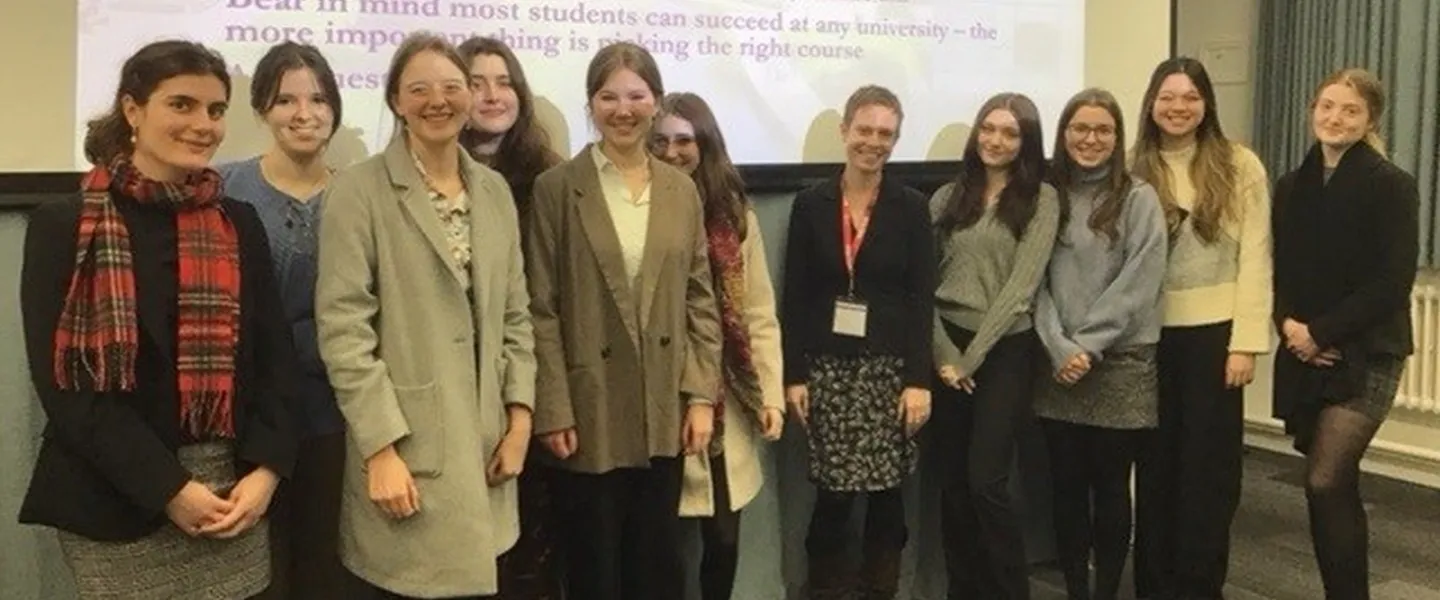Another two Academic Lectures have provided our students with further insight from expert speakers.
The programme gives girls in Year 12 and lower down the school some 'taster sessions' of university standard learning.
The first lecture of the fortnight saw the myth of Britain as a place where nobody knows any foreign languages shattered, in a fascinating talk by one of the UK's leading historians.
Dr Lindy Brady told a fascinating story of medieval and pre-medieval Britain as a place where foreign languages thrived and language knowledge was not only viewed as an important aspect of scholarship and learning but had major practical benefits.
'Nigel Farage has complained in the past that in some parts of the UK you rarely hear English being spoken. However, the writer Bede in the 8th century recorded that 5 different languages were spoken in the UK and it is absolutely the case that loads of languages were spoken in Britain historically," said Dr Brady, a Queen's parent and also a Senior Lecturer in medieval history at Edge Hill University.
'Before the Norman conquest there was a big Flemish population in Britain, Norse was still an influence on the language and then William the Conqueror introduces French.
'We also have a lot of examples of texts written in multiple languages to show off the writer's learning and also religious devotion."
Dr Brady shared some intriguing historical texts with her audience of Sixth Form girls from Year 12, including a poem part written in Latin and part written in Anglo-Saxon.
She also showed how documents were often produced with 'glosses' or translations into another language written in over the top of the main text.
The latest lecture in the series saw Year 12 pupils discover how using the wrong materials can lead to 'Titanic' mistakes.
Dr Julian Dean spoke offered a remarkable insight into the science of the 'stuff' that surrounds us every day in a talk promoting study in engineering and materials science.
"It is estimated that 70% of technical innovations are down to advancements in materials and how we make them," said Dr Dean, a senior lecturer in materials science at the University of Sheffield.
"If we can invent the right materials then we can fix pressing problems like addressing the need to hit net zero carbon so there is no doubt that materials science will hold the solution to a huge range of issues."
Dr Dean said that scientists were often drawing inspiration and ideas from the natural world - for example seeking to ape the incredible strength and flexibility of spider silk or the friction defying properties of slug slime. He also gave the 'solution' to why the Titanic sank so suddenly, pointing out the type of steel that was used in its construction and the brittleness it suffered from when sailing in particularly cold conditions.
Dr Dean mentioned how engineering students from Sheffield themselves were often leading the innovation process, for example by creating their own space rocket which currently holds the record for the highest ever amateur space flight in the UK.
Dr Dean was joined by fellow academic Amanda Southworth who explained the many different types of engineering on offer at Sheffield, from bioengineering to structural and chemical engineering. Pupils also heard from a current student who talked up both the course and the destination of Sheffield as an undergraduate location.
